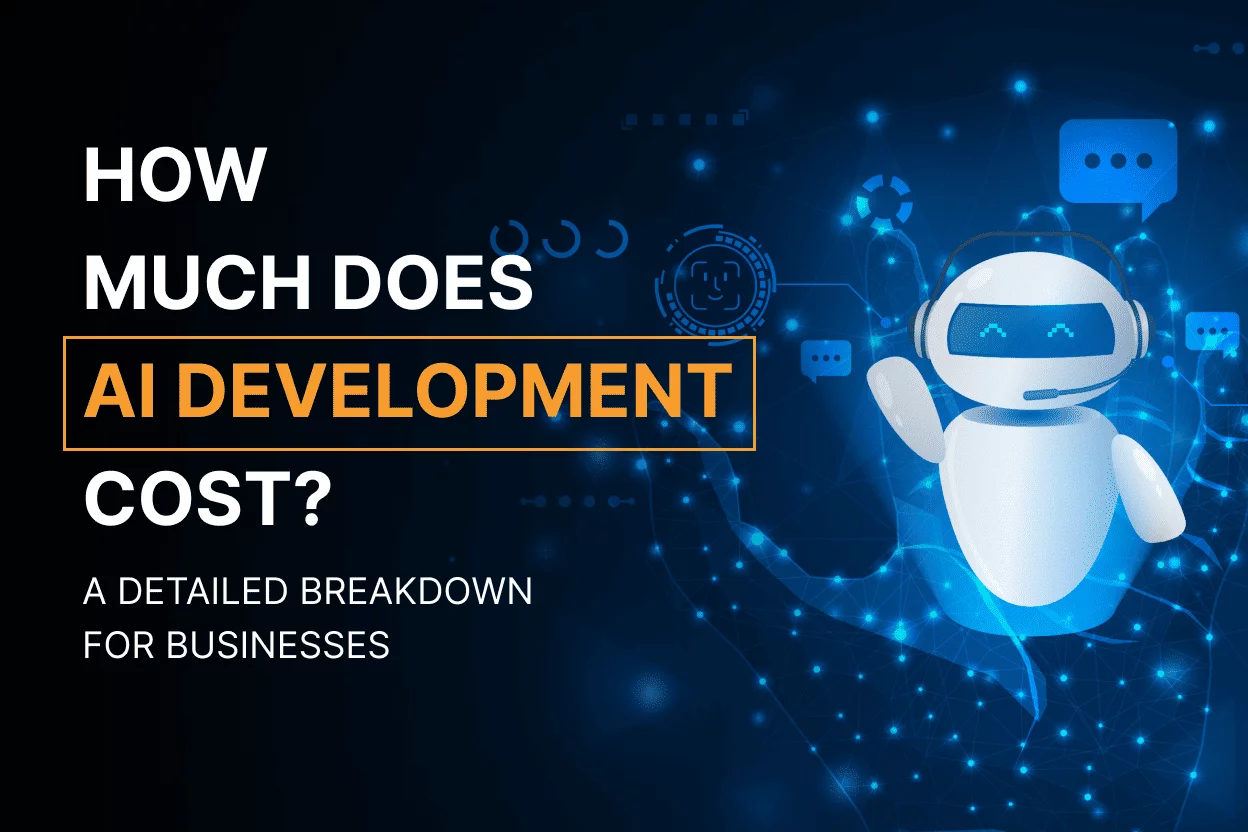At Google I/O 2025, Google unveiled a wide range of AI-focused enhancements across its ecosystem. Key announcements included Gemini 2.5’s Deep Think mode, AI-powered Search Mode, Google Beam’s 3D video calling, Android XR smart glasses, and a premium $250/month AI Ultra plan. Here’s a breakdown of the biggest updates revealed during the event.
Google’s I/O 2025, its annual conference for developers, returned with a packed schedule of announcements, demos, and ambitious tech developments. Hosted at the Shoreline Amphitheatre in Mountain View, this year’s event emphasized Google’s strong push into AI, showcasing major advancements throughout its suite of products. From the costly $250/month AI Ultra subscription to a revamped Search experience, Google rolled out a diverse mix of updates. some impressive, others potentially pricey. Here’s a summary of the most notable reveals from I/O 2025.
Gemini 2.5 Now Smarter Than Ever
Google’s Gemini AI, which powers many of its services, has received major updates. The new Gemini 2.5 Pro comes with an “enhanced reasoning mode” called Deep Think. This mode enables the model to evaluate multiple possibilities before responding, which is especially helpful for solving complex math and coding tasks. According to Google, this update places Gemini 2.5 Pro at the top of the LMArena leaderboard across all categories, with Elo scores increasing by more than 300 points compared to the first-generation Gemini Pro.
Meanwhile, Gemini 2.5 Flash is a more efficient and budget-friendly version. It has been improved in reasoning, multimodal input handling, coding ability, and long-context understanding. Google states that it now ranks just below the 2.5 Pro in benchmark tests while using 20 to 30 percent fewer tokens per response. For developers who want strong AI capabilities at a reasonable price, Gemini 2.5 Flash offers premium performance in a cost-effective package.
Project Starline is now Real with a New Name, Google Beam
Google’s futuristic 3D video calling concept, Project Starline, is becoming a real product called Google Beam. Originally developed to make virtual conversations feel like in-person meetings, it’s no longer just a research project.
The technology combines a six-camera setup and AI to deliver a realistic 3D video experience on a light field display. Google says it features highly accurate head tracking, measured down to the millimeter, at 60 frames per second in real time. HP will be the first to offer Beam devices to enterprise clients, and companies such as Deloitte, Duolingo, and Salesforce have already signed up.
It might not replace Zoom instantly, but it could make long virtual meetings a bit more bearable.
AI Ultra Might be the Unexpected Subscription tier People Grow to Appreciate
In a surprise move, Google introduced a new premium subscription called AI Ultra, which costs a steep $250 per month. Yes, that’s a monthly fee of two hundred and fifty dollars.
At this high price point, subscribers gain early access to Google’s latest AI tools and unlimited use of features such as Deep Research. The subscription also comes with 30TB of storage across Google Photos, Drive, and Gmail, along with YouTube Premium and access to experimental projects like Project Mariner. New users receive a 50 percent discount for the first three months, which still amounts to $125 per month.
Google appears confident that some users are willing to pay top dollar for advanced AI capabilities. Everyone else may have to wait until these innovations become available in more budget-friendly plans.
Google Search gets a Fresh New Look with the Addition of AI Mode
Following what Google described as one of its most impactful search launches in the past ten years, the company is now fully committing to reshaping online search through AI Mode. With this new feature, a dedicated tab in Google Search will allow users to ask more detailed and complex questions and continue with related follow-ups. This effectively transforms the search engine into an interactive, AI-driven conversation tool.
Initial users have been submitting search queries that are two to three times longer than usual, showing that people are already adjusting to this new way of searching. AI Mode, powered by Gemini 2.5, is now being rolled out across the US.
Google is also introducing new capabilities such as Deep Search, which boosts background query volume from dozens to hundreds to generate more in-depth results. Additionally, an AI-powered shopping tool will assist users in finding products and even allow them to virtually try on clothes using a photo of themselves.
Google Introduces Smart Glasses with Android XR
At the recent Android Show, Google revealed more about its Android XR platform for augmented, mixed, and virtual reality. A key highlight is Project Aura, a prototype of Android XR-powered smart glasses developed with Xreal. These glasses will include Gemini integration, wide field of view, cameras, and microphones. Google is also teaming up with brands like Samsung, Gentle Monster, and Warby Parker for stylish designs.
Android XR will support features such as live translation, directional navigation using a mini Google Maps display, and 360-degree video viewing. Compared to previous AR attempts like Google Glass, this marks Google’s most committed step into wearable tech.
Gmail to offer AI-powered Smart Replies that Sound Like You
Google is enhancing Gmail with personalized AI Smart Replies that reflect your writing style, tone, and common phrases. These replies will be created using past email data and Google Drive content (with your permission). For instance, if someone asks about a past trip, the AI could refer to your itinerary to generate a relevant reply.
This feature will launch in July through Google Labs for English users on the web, iOS, and Android. While convenient, the idea of AI mimicking your writing may feel uncanny to some.
Google Meet Gains Real-Time AI Translation
Google Meet is getting a major upgrade with AI-powered real-time translation, allowing speech to be instantly translated into another language during calls. It can even maintain the tone and rhythm of the original speech.
Initially, it will support English and Spanish, with more languages coming soon. Currently available in beta for Google AI and Gemini Advanced subscribers, this could be a game-changing feature for global teams and multilingual families.
Google’s AI Agent “Project Mariner” Gets More Capabilities
Google’s AI agent, Project Mariner, has received significant upgrades. It can now handle up to 10 different tasks at once, such as booking flights, researching products, or comparing shopping options. It also includes a “teach and repeat” feature, allowing users to demonstrate a task once and have the system repeat it in the future. Google is offering Mariner’s capabilities to developers through the Gemini API, in collaboration with platforms like Automation Anywhere and UiPath.
Google Unveils Project Astra
Project Astra is Google’s ambitious step toward creating a universal AI assistant. Unlike traditional assistants that only set timers or give weather updates, Astra is designed to interact with the world around you using tools like your phone’s camera. It can understand what you’re seeing and provide helpful, context-aware responses.
By 2025, Astra is expected to support a wide range of tasks such as troubleshooting home electronics, conducting real-time research, and engaging in natural conversations. Users comfortable with deeper AI integration may find this tool particularly useful. The early version of Project Astra is already rolling out in Gemini Live for Android users, with iOS support coming soon.
Google’s Veo and Imagen Get More Advanced
If AI-generated videos seemed unrealistic before, Google’s latest keynote may change your perspective. The company introduced new updates to its tools, including Veo 3, the latest version of its AI video generator. Veo 3 now includes audio creation, allowing it to add background sounds, music, and spoken dialogue to videos. Previous versions only produced silent clips, which were less useful for video-driven platforms like TikTok and YouTube.
Imagen 4, Google’s text-to-image model, has also been enhanced. It can now produce more lifelike images with improved details such as fabric textures, water droplets, and animal fur. The tool supports exporting images in various formats with resolutions up to 2K.
Google also unveiled Flow, a new AI filmmaking app that builds on Veo and Imagen. Flow allows users to create eight-second AI-generated video clips from text or image prompts. These clips can be stitched together using built-in scene builder tools to form longer videos. Think of it as a compact video production studio that fits in your pocket, although it may sometimes interpret creative prompts in unexpected ways.
Let’s Build Digital Excellence Together












